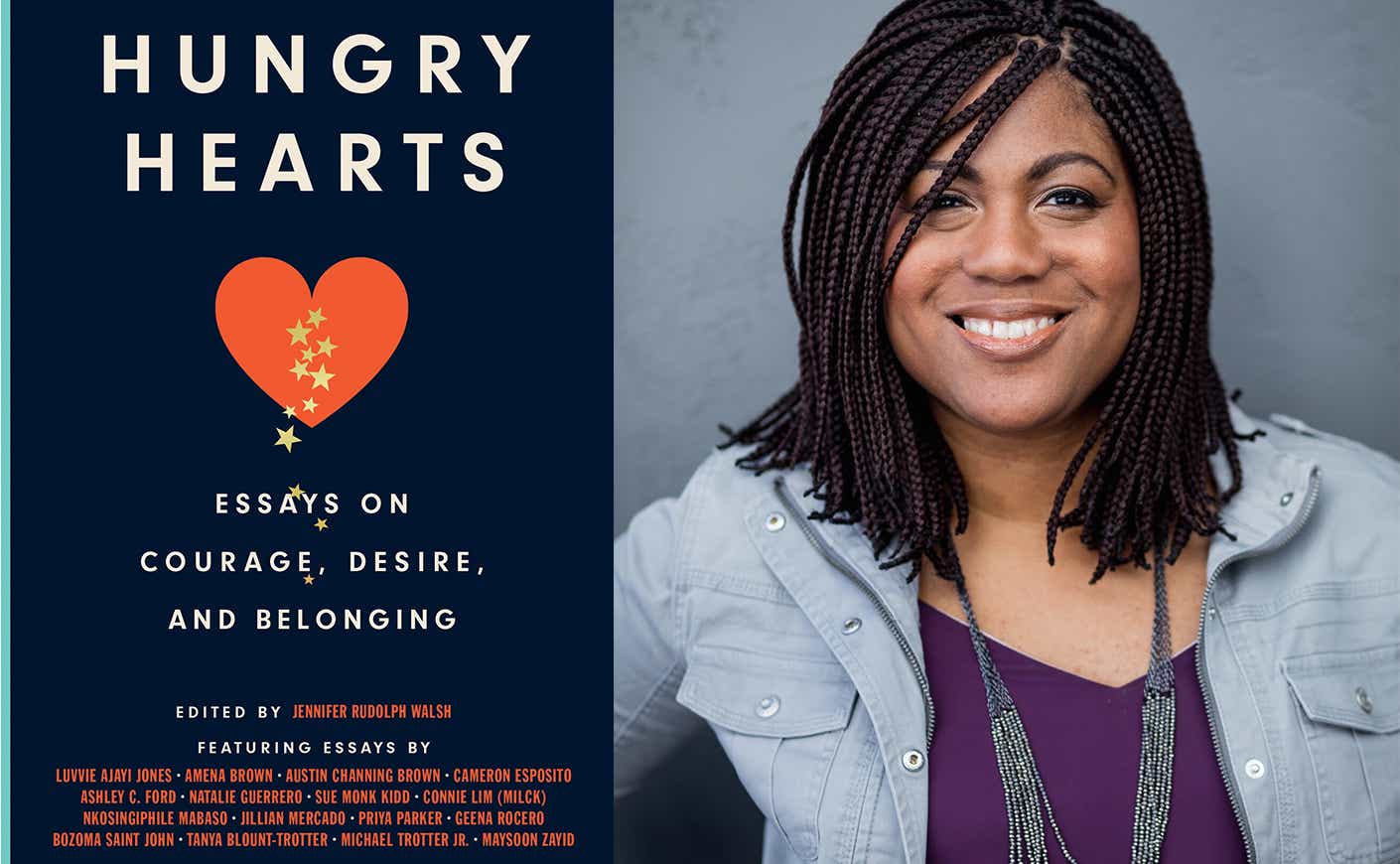You may know Austin Channing Brown as a New York Times bestselling author, an authority on racial justice in America, or executive producer of the web series The Next Question. But before she had achieved all of this success, Channing was an aspiring writer filled with self-doubt. In the new anthology Hungry Hearts: Essays on Courage, Desire and Belonging, Channing shares a short story about finding her voice and owning her ambition in an industry filled with competition. KCM spoke with Channing about how she overcame these hurdles… and how you can, too.
You were initially very uncomfortable with being described as ambitious. What was it about that word that made you feel so reluctant to own it, and how did you overcome that reluctance?
I think I always attributed being ambitious with people who wanted to be politicians or lawyers, or were seeking the c-suite. I had never considered that ambition isn't only attached to particular jobs or endeavors. Until then I hadn't considered what it looks like for an artist, a writer, an activist, or a creative to be ambitious. But something about the word did resonate as soon as I heard it applied to me. It was like a new piece of clothing I wasn't sure how to put on. It wasn’t that I didn't want it, or was afraid of it, I just wasn't sure which hole to put my head through and which were for my arms. Having a friend walk me through what ambition looks like for her helped me recognize what it looks like in my own life— and now that I can see it, I can enjoy it.
You describe “the lie of scarcity,” which is something I think that many women in particular have been conditioned to believe. Can you explain that?
As a creative person it's easy to fall into thoughts of scarcity. The one some of us wrestle with consistently is: will my creative juices one day run out! Sometimes it's hard to believe that I have an unending wealth of stories to tell (or pictures to take, or paintings to create, or programs to start, etc). But we also have to work to believe that there is room for all of us, which can be hard when you didn't get the grant, fellowship, notoriety, and so on. It can be hard to affirm ourselves, the same way we would affirm our bestie if she was struggling with scarcity. We so easily can offer encouragement to her, but struggle to see the same possibilities for ourselves.
Your essay is a powerful tribute to the importance of community. To those who don’t feel like they have a community of their own, how can you build one?
I confess this is much harder to do in light of the pandemic. Before, the suggestions were endless- finding hobby groups, volunteering, participating in clubs, asking the local library about upcoming community events, checking out events happening at the local college or university, participating in workshops or conferences... There were so many ways to find like-minded folks. Now, finding community safely is rather limited, but still not impossible. I think the big question is: where are people indulging their passion? For example, is there a social media network that is as passionate about Black horror movies as you are? Is there a class series you can join on female gamers? Is there an online group that meets virtually to discuss how to be a mom and a creative during a pandemic? If possible, begin by seeking out not just one person, but by becoming a part of a group and seeing you might vibe with.
You start your story with a memory of when you were just a little girl. What message do you have for all of the little girls out there who may be feeling society’s mixed messaging over staying humble or trusting their own ambition?
First, I hope that society will do a better job of complimenting girls on their ambition- the same way we compliment them for being pretty or nice or giving. Imagine a little girl instead being told- "I love the ambitious dreams you have for yourself!" Secondly, I want young girls to know that ambition and humility aren't mutually exclusive. I feel overwhelmed with humility every time I get up to speak to an audience. I am overwhelmed that people would leave their homes and come to one location to listen to me talk. You see comedians and singers and all kinds of people who are overwhelmed by humility, but that doesn't stop us from being ambitious; humility makes us work even harder at our craft. We want it to be worth people's time, money, effort, etc. Humility reminds us where we came from and keeps our ambition pointing not at ourselves, but the communities we represent and those we want to serve. I want little girls to know they can and should have both humility and ambition.









